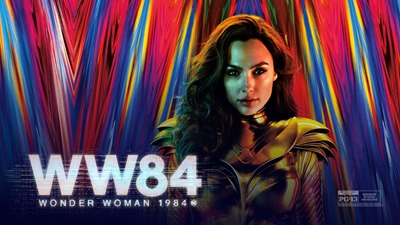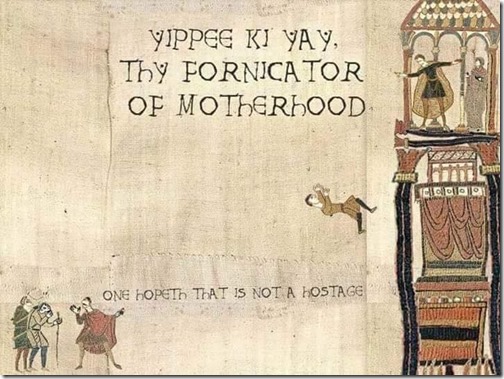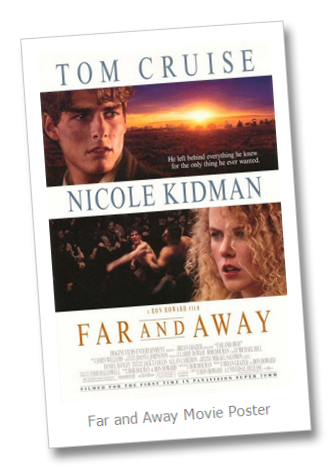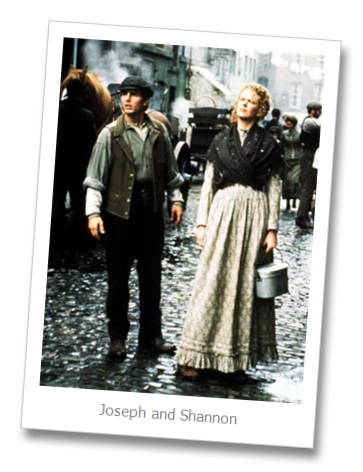Movie Review: Wonder Woman 1984
29 December 2020 • by Bob • Reviews
After months of sequestration due to the Wuhan/COVID19 Pandemic of 2020, my wife and I decided to catch a movie. Sadly, however, the feature that we chose to see was Wonder Woman 1984. I'll provide more details in a moment, but for now let me summarize my opinion of this motion picture: I would give it a C- for a grade, although on a scale of 1 to 10 I'd probably give this sorry cinematic offering a 3.
WARNING!!! SPOILERS AHEAD!!! (You have been warned.)
As I just mentioned, there are several major spoilers in this post, so quit reading if you haven't seen it. With that being said, here is my list of gripes from this thoroughly pedestrian movie:
- The film was easily 30 minutes too long. Part of the cause for that excessive running time are the numerous and boring fight scenes that drag on and on and on and on and on and on...
- Bringing back Chris Pine's "Steve Trevor" character was a ridiculous plot point, and served no purpose other than getting Chris Pine back on the screen.
- Seriously, Wonder Woman - it's been 70 years since Steve Trevor died and you come from a land where men are unnecessary; you really need to move on already. Pining over Chris Pine (pun intended) just makes you look weak.
- Chris Pine's fashion show of 80s-era clothing had no point whatsoever and could easily have been cut to reduce screen length. And the fanny pack should have served a real purpose and/or saved the day at some point during the movie - that would have actually been funny, which is probably why DC missed that opportunity.
- What happened to the hapless dolt when Steve Trevor took over his body? How did he come back? Does he know that someone else was using his body for several days while injuring it in fights and having sex while using it? Isn't this more than immoral and really kind of gross?
- Wait - Wonder Woman can fly now? With no wings? And no invisible airplane? Who writes this crap?
- There is NO WAY that a jet fighter can fly from the USA to Egypt on a single tank of gas - that plane would have gone down over the ocean and both Wonder Woman & Steve Trevor would have been dead and the movie would have been over.
- Somehow DC hasn't figured out Marvel's way to make an action movie with superheroes that has actual humor, so every attempt at a joke falls flat and the trailer for the movie steals all the best scenes.
- This movie was another offering from DC where the entire world is largely destroyed, and and yet no one is held responsible and everyone's lives are happy again in the very next scene.
- 1984 had to have been chosen as the year when this movie takes place due to George Orwell's famous novel of the same name, but ultimately this film has nothing to do with Orwellian themes, and as a result its title and setting are nothing more than a cheap stunt at getting butts in seats with instant name familiarization and periodic 80s nostalgia.
- Whatever happened to the "Dreamstone" after Pedro Pascal's "Max Lord" character renounced his wish? That was a MAJOR plot hole.
- Wait - there's a broadcasting system that can simultaneously take over all of the communication systems across the entire planet?
- Somehow Wonder Woman was able to convince the ENTIRE PLANET to renounce their wishes at the same time? And for some reason they all spoke English? I have three words for that: Deus Ex Machina.
- A far more realistic ending would have been for the world to revert itself after Max Lord renounced his wish.
I could go on and on about all of the major issues that I found with this film, but I should end my thoughts about my experience seeing this movie by saying one thing positive: the Red Vines licorice that I consumed during the movie was great.
Movie Review: Radioactive
29 August 2020 • by Bob • Reviews
Marie Curie is one of the most-brilliant physicists and chemists in the history of science. She was a pioneering woman who was years ahead of her time, and her life deserves a biopic in tribute to her genius that is equally as brilliant as she was. Sadly, Amazon's 2020 release of Radioactive is not that biopic.
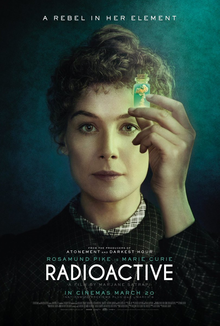
WARNING!!! SPOILERS AHEAD!!! (You have been warned.)
To be perfectly honest, I looked forward with great anticipation for this film to be released. Marie Curie's many contributions to science and humanity are almost legendary, and Rosamund Pike is a brilliant actress who is capable of reading the dictionary and making it sound wonderful. However, this movie isn't terrible because it lacks a strong female role model from history, nor is this movie terrible because it lacks an equally strong actress to play the lead character, nor is this movie terrible because it lacks an impressive set of actors to play the periphery characters, nor is this movie terrible because it lacked an acceptable script. The primary reason this movie is terrible is because it was guided by a director, Marjane Satrapi, who was apparently preoccupied with trying to create a work of "art" at the expense of the story that she should have been telling.
Here is one perfect example of useless "artsy" direction: after the tragic and untimely death of Marie's husband, Pierre, there is a long dream sequence with bizarre imagery that resembles one of the many LSD/acid trip scenes from Oliver Stone's 1991 biopic The Doors. While I admit that it was essential to Marie's story to include various scenes that depict her extreme grief after Pierre's death, this dream sequence had no place in the film. For this travesty of screen time I fully blame the director.
Here is another example of useless "artsy" direction: at several times throughout the film, the scene would suddenly jump several decades into the future from Marie's timeline in order to show how radiation was used after her death. Examples shown were both for good (e.g. radiation therapy for cancer patients), and for evil (e.g. atomic bombs and Chernobyl). These scenes were supposed to convey the eventual impact of Marie's discoveries, but the jarring way in which the story jumped around on screen made no sense at all. All of those scenes would have been better suited as some sort of visual epilogue that discussed the long-term results of Marie's efforts, which should also have included nuclear power as one of the many positive benefits. (See FOONOTE below.)
And here is yet another example of useless "artsy" direction: near the end of the movie, Marie finally succumbs to her years of radiation poisoning, and viewers are treated with a nonsensical scene of Marie walking through various hospitals of the future to visit the eventual victims of radioactivity's many ills. However, this scene wasn't as "artsy" as the director undoubtedly intended. On the contrary, this scene was just... silly. It had no emotional impact, it didn't serve the plot, and it really had no place in this film.
One of the main arguments that I have with this movie is the fact that far too many scenes play fast and loose with history. As with all Hollywood biopics, scenes are added, or shown out of order, or lack their historical impact. For example, the movie depicts Marie being offered her late husband's teaching position at the University of Paris, which was a first for a woman and certainly significant from a historical perspective. However, Marie had already been teaching for several years at the Ecole Normale Superieure in Paris; a position she earned through her own merits, which is far more impressive than assuming the position that her deceased husband had previously occupied. An emotionally gripping scene from the film is a vicious argument that ensues after Pierre travels to Stockholm to accept their Nobel Prize without Marie, which is notoriously and negligently inaccurate; both Pierre and Marie traveled to Stockholm, therefore the entire argument scene is nothing but a fabrication for dramatic effect, and grossly unfair to Pierre's public memory.
Another point of contention is that this movie begins too far into Marie's career, and completely glosses over her early years of struggle to enter a university and earn her degrees at a time when such things were nearly impossible for a woman to achieve. These are important pieces from Marie's story that should have been portrayed, but those parts of her past were completely ignored by this film in order to advance scenes that were ridiculously unnecessary - such as Pierre's obsession with spiritualism and séances. (Those scenes were useless to the story and had silly-looking and unnecessary special effects; e.g. ectoplasm portrayed as green electrical sparks. This movie wasn't supposed rip off scenes from Ghost Busters.)
If I were one of Marie's descendants, I think I would have been offended at the consistently selfish behavior that Marie's character consistently displayed. Granted, I never met Marie Curie, nor have I read any correspondence from her, nor have I met anyone who met her. Perhaps she was a selfish person who spent her entire life obsessed with nothing but personal gain. However, this movie had a scene in which Marie's children entered her bedchamber while she was having an affair. In this scene, Marie's only reaction was to ask her children if they wanted her to feed them, otherwise they needed to get lost. This scene and several like it destroy the chances that today's young women would look to Marie as any sort of heroic figure to emulate.
To give benefit of the doubt, this film's portrayal of Marie as a selfish and combative creature might have been someone's half-hearted attempt to show a strong female character. However, there is a world of difference between showing strength and being a narrow-minded, self-absorbed jackass, and this movie tended to lean way too far toward the jackass side of the behavior spectrum where Marie was concerned.
In a way, this movie has a hard time finding an audience; the history is far too bad to be useful to anyone who is interested in studying about the life of Marie Curie. In addition, if I were an educator, the protracted scenes of sex and nudity would prevent me from being able to display this movie to students. Which is too bad, because the world needs more girls to be interested in STEM subjects, and this movie threw away a perfect opportunity to help out in that endeavor.
With another director at the helm, and with a better script that delved more into Marie's history, Amazon might have been able to produce a wonderful mini-series about Marie Curie's life. Instead, this director and the accompanying script produced little more than a two-hour gap in my life that I will never get back.
FOOTNOTE:
On a personal level, I found it morally reprehensible that the director, Marjane Satrapi, kept jumping back and forth between Pierre's acceptance speech for his Nobel prize to scenes of the Enola Gay dropping the atomic bomb on Hiroshima. The director's intention is perfectly clear: each time Pierre suggests how a "criminal" might use radioactivity, the story jumps to the scenes of the Enola Gay. There is no mistaking the director's meaning here: she is accusing the United States of war crimes.
I find it highly doubtful that anyone involved with this film was alive when World War II had been raging for six years, (or eight years if you include Japan's bloody invasion of China). By 1945, the war had already cost the world around 70 million lives. (See Fallen.io for a breakdown of how the number of deaths were obtained and how casualty estimates were distributed across the planet.)
If Japan hadn't surrendered, the war would have raged on for years, costing millions of additional lives. As counter-intuitive as it may seem, the bombs dropped on Hiroshima and Nagasaki saved millions of Japanese lives. (See Operation Downfall for details on how costly the inevitable invasion of Japan would have been in terms of casualties; both allied and Japanese.)
This miniature history lesson is outside the scope of a movie review, although it is certainly indicative of the director's continued obsession with playing it fast and loose with history, while also taking a moment to cram her close-minded and naïve opinions down her viewers' throats. Shame on you, Marjane Satrapi. You're not just a bad director and bad student of history, you're apparently a pretty rude person, too.
Tales of Christmas Past...
24 December 2018 • by Bob • Christmas, Humor
In ancient days of yore, constable Ioan McClane (of the clan McClane) routed the Visigoth Hans von Gruber from the prodigious citadel of Nakatomi...
My Thoughts about the New Star Trek Beyond Trailer
14 December 2015 • by bob • Ponderings
As a long-time Star Trek fan, I watched this newly-released trailer for the latest installment in the rebooted Star Trek franchise with a great deal of anticipation:
Star Trek Beyond - Trailer (2016) - Paramount Pictures
http://youtu.be/XRVD32rnzOw
This trailer brings up an interesting point: I once read that all good science fiction must challenge something and/or push society to be better, which is why all of the individual Star Trek television series dealt with issues of war, morality, science/technology, racism, power struggles, etc. If you go back to classic Science Fiction like Ray Bradbury, Isaac Asimov, Philip K. Dick, etc., they all challenged similar subjects.
However, the most-recent Star Trek movies have not challenged much of anything; they are simply action flicks. At the moment this latest movie seems more like it's going to be "The Fast and the Furious with Aliens." That might not be so bad if all you're interested in is two hours of mindless fight scenes, chase scenes, and sex scenes, but that's not good "Science Fiction" in the traditional sense.
So at the moment I am unsure about this upcoming Star Trek movie; I will have to wait until next year to know how it turns out.
June 22, 2016 Update: I found the following article rather insightful about what makes good Science Fiction:
10 Laws of Good Science Fiction10 Laws of Good Science Fiction
While I realize that true creativity follows no rules and knows no boundaries, I still agree with a lot of what that article has to say.
Meryl Streep and the Most-Vilified Segments of Society
09 January 2014 • by Bob • Rants
At last night's 74th Golden Globes Awards, Meryl Streep had the audacity to compare the occasional inconveniences of Hollywood elites to the suffering of immigrants when she was delivering an acceptance speech for yet another unnecessary award. However, my sarcasm and rhetoric cannot do justice to just how out-of-touch Ms. Streep is with reality; here are the ridiculous thoughts she actually uttered out loud before a crowded auditorium:
"All of us in this room, really, belong to the most-vilified segments in American society right now. Think about it: Hollywood, Foreigners, and the Press."
First of all, it simply amazes me that Ms. Streep cannot comprehend the irony of equating whatever fake oppression she believes she is experiencing with the real-life suffering of others while standing onstage at another over-the-top example of Hollywood's infatuation with itself. Awards shows like the Golden Globes are - of course - nothing more than another opportunity for self-indulged entertainers to fall in love with themselves all over again. Judging by the number of times per year that Hollywood entertainers need to pat themselves on the back for doing their jobs, you quickly get the impression that they are anything but a vilified segment of American society. (Hollywood types are, however, incredibly insecure cry-babies with delusions of grandeur, but I digress.)
Think about it, no other career field - not even professional sports - has anywhere near the number of awards shows that Hollywood film, television, and music entertainers have for themselves every year. Here is only a partial list:
AACTA Awards, Academy Awards (The Oscars), Academy of Country Music Awards, ACTRA Awards, Alternative Press Music Awards, Amanda Awards, American Academy of Arts and Letters Gold Medal in Music, American Country Awards, American Country Countdown Awards, American Music Award, ARIA Music Awards, ASCAP awards , Atlanta International Film Festival, Awit Awards, Back Stage Garland Awards, BAFTA Anthony Asquith Award, BET Awards, Billboard Awards, Billboard Music Awards, Brit Awards, British Academy Film Awards, British Academy Television Awards, British Composer Awards, Canadian Cinema Editors Awards, Canadian Screen Awards, Cannes Lions International Advertising Festival awards, CMT Music Awards, Comet, Country Music Association Awards, Country Music Awards of Australia, Critics' Choice Movie Awards, Critics' Choice Television Awards, Directors Guild of Canada Awards, Distinguished Service to Music Medal, Donaldson Awards, Drama-Logue Awards, Drama Desk Awards, Drama League Awards, Edward R. Murrow Awards, Emmy Awards (Creative Arts), Emmy Awards (Daytime), Emmy Awards (Primetime), Emmy Awards (Sports), European Film Awards, Evening Standard Awards, Filipino Academy of Movie Arts and Sciences Awards, Filmfare Awards, FIPA awards, Game Show Awards, George Peabody Medal, GLAAD Media Awards, GLAAD Media Awards, Gold Badge Awards, Golden Bear, Golden Globe Awards, Golden Leopard, Golden Lion, Golden Melody Awards, Golden Nymph Awards, Golden Orange, Goldene Kamera, Governors Awards, Goya Awards, Gracie Allen Awards, Grammy Awards, Grand Prix du Disque, Grawemeyer Award for Music Composition, Grimme Preis, Handel Music Prize, Herbert von Karajan Music Prize, Hollywood Walk of Fame, Humanitas Prize, Independent Spirit Awards, Indonesian Film Festival, International Indian Film Academy Awards, Iris Awards, Ivor Novello Awards, Juno Awards, LA Weekly Theatre Awards, Latin Grammy Award, Laurence Olivier Awards, Leo Awards, Logie Awards, Lola Awards, Los Angeles Drama Critics Circle Award, Los Premios MTV Latinoamérica, Lucille Lortel Awards, Léonie Sonning Music Prize, MOBO Awards, MTV Africa Music Awards, MTV Asia Awards, MTV Australia Awards, MTV Europe Music Awards, MTV Movie & TV Awards, MTV Video Music Awards, National Dance Awards, National Film Awards, National Television Awards, New York Drama Critics' Circle Awards, New York Film Festival, Obie Awards, Otaka Prize, Outer Critics Circle Awards, Ovation Awards, Palme d'Or (Cannes Film Festival), Peabody Awards, Polar Music Prize, Praemium Imperiale, Prix de Rome, Pulitzer Prize for Drama, Pulitzer Prize for Music, Royal Television Society Awards, San Diego Film Awards, Sanremo Music Festival, Sarah Siddons Award, Screen Actors Guild Awards, Shooting Stars Award, Sibelius Prize, Stellar Awards, Suntory Music Award, Theatre World Award, Tony Awards, Young Artist Awards, YouTube Music Awards, etc., etc., etc.
And these awards are simply for doing their jobs. While I recognize the fact that such awards are ostensibly being given to those who did the best job for the year, it's still an award for doing something that often does not require that much skill. Seriously. It takes very little talent to pretend to be someone else for a few days per year. The guy who recently fixed the air conditioner in my house has arguably more skills than many of the Hollywood A-Listers. But then again, the guy who fixed my air conditioner doesn't get any awards for doing his job; he gets paid. Of course, he probably only made a few hundred dollars while working for me, whereas Ms. Streep makes millions of dollars every time she steps in front of the cameras to do something that any number of struggling actors could undoubtedly do better.
And yet Ms. Streep is oblivious to just how ridiculous she sounds when she compares her life of awards shows, exorbitant salaries, first class jet-setting around the globe, designer gowns, luxury hotels, and palatial mansions to the sufferings of refugees and immigrants. I find it difficult to believe how someone - how anyone - could be that self-absorbed.
Contrary to her feelings on the matter, Ms. Streep is not a member of a vilified segment of American society; but she should be.
Not that it will make any difference...
27 June 2013 • by Bob • Rants
I am a big fan of movies; and to be honest, I am mostly a fan of classic movies. I have slowly collected a large number of classic movies over the years from several of my favorite actors/actresses: Cary Grant, Ginger Rogers, Jimmy Stewart, Katharine Hepburn, Errol Flynn, etc., etc., etc.
That being said, I am generally not a big fan of recent movies; more often than not the creative team is too short-sighted, and they frequently fall short of creating a truly great movie. Sometimes the problem is writing, sometimes it's direction, and other times it's the acting. But to be fair, sometimes the problem isn't with any of those contributors - sometimes it's a problem with post-production, and this is why I love to buy "Director's Cuts" for many films. Quite often there is a level of depth that is missing from the movie that was part of the director's original vision, and it makes the movie so much better when you add that detail back.
Here's a case in point: I actually like the movie Far and Away with Tom Cruise and Nicole Kidman. Once you get past their bad Irish accents, the movie is a somewhat-acceptable dramedy.
But there are a few scenes that were cut from the film, and unfortunately the DVDs that have been released have never added those scenes to the media. Without theses scenes, parts of the plot have abnormal jumps in the storyline, and it's too bad that a Director's Cut has never been released.
Here are some examples of what I mean:
- Near the beginning of the movie was an extended sequence near the piano in the Christie's house where Stephen Chase has a private conversation with Shannon Christie. We see Stephen's character soften a little; we learn that he truly cares for Shannon, and that Stephen is not a complete jerk - he's just an arrogant by-product of elitist class.
- Likewise there was a hilltop scene in Ireland after Shannon and Joseph Donnelly have left for America where Stephen is emotionally destroyed, and he expresses his sentiments to Daniel Christie. Once again this softens Stephen's character a little, and this adds a great deal of conflict to the movie as a spectator - you want to hate Stephen, and you feel like you should hate Stephen, but now you can't. That was a great piece of filmmaking that should have stayed in the movie because it added so much depth.
- There was an extended scene later in the movie when Joseph was working for the railroad. The shortened scene that was kept simply shows Joseph in a job with no future, whereas the original scene showed Joseph as near-suicidal; Joseph believed not only that he had lost Shannon for good, but that Shannon might not have survived her gunshot wound. Because of this, Joseph was known as the "Crazy Mick" and sent on all of the dangerous missions - because Joseph no longer cared if he lived. This added a whole new dimension to the scene when Joseph discovers Shannon in Oklahoma, because it wasn't mere coincidence to him, he felt as if he was seeing a ghost.
- There was a brief scene when Joseph and Shannon first arrive in America where they pass under a bridge and they see scores of homeless Irish living in squalor. Later in the movie this comes full-circle when Joseph and Shannon are tossed out in the streets, because they find themselves living in that same squalor, and we get to see just how far they have fallen.
- There was another scene after Joseph and Shannon are tossed out in the streets where workers were needed for ditch-digging; Joseph volunteers so that he can earn money for the two of them, yet when he turns around at some point he sees Shannon working beside him digging in the ditch. This scene was extremely important to see how the two of them were truly becoming one unit in their struggles together, and it adds a great deal of depth to the scene later in the movie when Joseph and Shannon attempt to hide in the house they thought was unoccupied.
The last two deleted scenes that I described show the many months that Joseph and Shannon suffered together, instead of the awkward jump in the theatrical release between the scene when Joseph and Shannon were thrown out of their apartment (with Joseph beat to a pulp) and the scene when Joseph is begging to help someone load firewood (with Joseph now healed and exclaiming that they haven't eaten in days). Without that detail, the theatrical release is missing a great deal of its emotional impact.
Unfortunately, none of the scenes that I have described have ever been released on a DVD, so they are somewhat lost to the world. My descriptions of these additional details won't bring them back, and it's too bad that Imagine Films won't release these scenes in some format. If anyone knows Ron Howard, you might want to suggest that he release a 25th Anniversary Edition of Far and Away when that date eventually rolls around, but in the meantime - my lamentations won't make a bit of difference.
